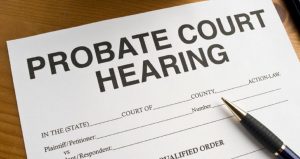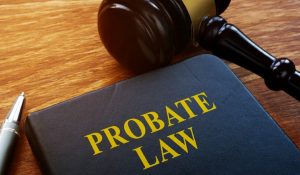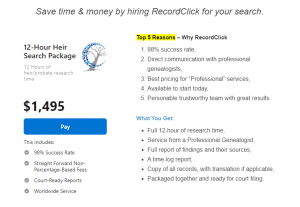Table of Contents
- 1 What Are the Pitfalls in Intricate Family Structures?
- 2 What Does Probate for Intricate Families Look Like?
- 3 How Does Heir Search Help Unravel Intricate Family Structures During Probate?
- 4 Benefits of Using Heir Search to Unravel Intricate Family Structures during Probate
- 5 How Does Record Click Heir Search Specialists Help Attorneys Unravel Intricate Family Structures?
In a recent probate case, the attorney was desperate to unravel intricate family structures and quell the high tensions caused by fighting co-wives, hidden assets, and illegitimate children claiming heirship.
The decedent, Mark, intended to have everyone in his life catered for upon his death, leaving plenty of assets and cash. Unfortunately, he had no Will despite having separated from two wives and married a third, but having joint properties with each.
To add insult to injury, the latest union had two sons, with the eldest claiming to be the designated estate administrator. Were it not for the assistance of a forensic genealogist, the probate attorney was almost freaking out with all this chaos.
It is a classic example of why probate attorneys should consider heir search services when they want to unravel intricate family structures during probate.
What Are the Pitfalls in Intricate Family Structures?

Intricate family structures may involve blended families and adoptions
A family structure can be considered intricate or extensive when it involves multiple marriages, blended families, adoptions, international heirs, illegitimate children, and more. Such families have proven to be the most challenging for probate attorneys when trying to expedite the probate process and distribute assets.
One of the common pitfalls probate attorneys encounter when handling intricate family structures during probate is working on a Will or estate plan that was not updated as circumstances changed.
Another pitfall could emanate from a testator who assumed that the new spouse is so humane that they will automatically distribute the estate to every beneficiary equitably if they themselves die.
Notably, plenty of the pitfalls emerge from decedents who never bothered to plan their estate or even draft a Will.
Whatever the case, the results are almost certainly disastrous.
Understandably, handling a probate process involving a complex family structure can be a hassle, and it calls for a highly specialized skill set from a qualified attorney. Multiple marriages, international heirs, illegitimate children, adoptions, and blended families can bring up legal and emotional issues, but incorporating heir search expertise can help the attorney see around the corners.
What Does Probate for Intricate Families Look Like?

With the proper documentation, proof of heirship, and an inventory of all the assets, probate can be hassle-free
Generally, the worst-case scenario is that disputes between relatives will ensue since the probate court gets to decide how the estate should be distributed. Besides, the process may take too long and get very expensive as interested parties make their claims and sabotage any meaningful progress.
Moreover, the threshold for probate is exceptionally low in most states like California. So, the probate attorney could be entangled in a process involving a meager estate for years and years. However, with the proper documentation, proof of heirship, and an inventory of all the assets, it becomes hassle-free for the attorney to escape the whirlwind and deliver their case within months.
How Does Heir Search Help Unravel Intricate Family Structures During Probate?

Heir search can help locate untangle intricate relations
Heir search services can help unravel intricate family structures during probate on three fronts. First, the service involves forensic genealogy that can structure, restructure, and verify family trees associated with the decedent, making locating heirs and determining heirship levels easy.
Secondly, heir search services also involve the interpretation of inheritance laws across jurisdictions, ensuring that probate lawyers conduct the process in accordance with laws and regulations.
Thirdly, heir search service providers can locate all the assets associated with the decedent, ensuring a timely conclusion of the probate process.
What Does Heir Search Entail?

Heir search involves joining the dots and back information with concrete evidence
Heir search leverages forensic genealogy to identify heirs or beneficiaries of an estate. However, unlike genealogy, which goes back in time to trace ancestors, heir search goes forward, starting with the decedent to the living heirs.
Probate heirs search service providers identify and locate heirs guided by state laws. They also generate detailed reports, including exhibits and affidavits, to facilitate estate distribution. Their exclusive access to vital records and societies can help validate and expedite the process.
Moreover, the search may cross beyond borders, requiring a solid understanding of international laws, languages, cultural norms, and politics. Such roadblocks are the reasons you may need the assistance of a professional heir searcher. Note that your choice of researcher must be certified, insured, and licensed.
In addition to skills and access to records and databases, heir search services leverage advanced methodologies like DNA to detect fraud and verify heirship.
Below are the various ways heir search will help an attorney unravel complex family structures during probate and ensure accuracy, due diligence, and efficiency:
1. Accurately Structure Family Trees

Family Tree
Comprehensive family structures for cases involving illegitimate children, adoptions, blended families, and multiple marriages should be the first thing a probate attorney pursues to kick start and expedite the probate process.
However, with the confusion and errors that can occur in such structures, it becomes imperative to seek the services of a professional search service provider. With vast experience in forensic genealogy and complex family structures, probate genealogists can quickly create different family trees from scratch and ensure you knock the probate process out of the park.
What’s more? Heir researchers provide original documents like birth certificates, marriage certificates, adoption papers, divorce decrees, DNA results, and more to support their findings. They also detail tables of consanguinity to show which relative comes first based on inheritance laws. These resources can help support or refute any claims of inheritance.
With complete family trees accurately placing all the involved parties at their rightful place, it becomes easy to locate each one. Most importantly, the records efficiently provide clues about each heir’s whereabouts, so finding missing or unknown beneficiaries becomes a walk in the park for skilled researchers.
2. Finding All The Assets

A comprehensive heirship verification ensures timely estate distribution
Heir researchers’ expertise in extracting crucial documents from libraries, archives, and online databases means they can easily trace the decedent’s assets and safes. It is worth noting that families with intricate structures and contestations are likely to have hidden assets, and heir researchers understand this too well.
For this reason, they leave no stone unturned when searching property, business interests and investments, collectibles, offshore accounts, digital assets, and more.
Here is a sneak peek into the process of uncovering wealth and inheritance.
- Asset Investigation: This process involves a systematic examination of the decedent’s assets, accounts, documents, and records. The investigator may also interview friends, associates, family members, and employees for clues.
- Forensic Accounting: The researchers may analyze financial data that can reveal liabilities, assets, or income. They are better placed to spot anomalies and patterns that could lead to a concealed treasure.
- Physical Searches: The decedent’s home, offices, or other premises may be searched for devices, paperwork, deposit boxes, or other places where valuables may be concealed.
- Financial Records and Institutions: Tax returns, credit reports, financial records, and other pertinent documents can be insightful about financial history. Similarly, investigators can contact relevant financial institutions, agencies, organizations, and businesses that the decedent dealt with, for clues on assets.
Heir researchers’ understanding of the nuances helps them easily evade the pitfalls and prove their case with substantial evidence and accuracy.
3. Interpreting Inheritance Laws

Estate settlement should be done legally and ethically
Heir researchers are well versed with inheritance laws, thanks to their experience and expertise across jurisdictions. Therefore, they can help break down inheritance and intestacy laws for different jurisdictions besides completing complex family trees and finding assets.
They also understand the local cultures, histories, and legal systems, so they can quickly provide guidelines on the following;
- Who qualifies as a beneficiary or heir of the intestate estate?
- What percentage or share of the estate is each beneficiary or heir entitled to.
- What is the priority or order of inheritance
- How inheritance rights apply to spouses, children, siblings, parents, etc.
- The inheritance rights of stepchildren, illegitimate children, adopted children, and other non-biological relatives.
- How the inheritance rights of spouses are affected by divorce or remarriage.
- How criminality, renunciation, incapacity, disinheritance, and predecease can affect inheritance rights.
- The inheritance rights of charities, the state, or creditors.
Also, probate courts have relied on legal precedents to determine heirship. These precedents provide authority on how to apply the law while establishing the principles that determine heirship.
Benefits of Using Heir Search to Unravel Intricate Family Structures during Probate

Heir Search
Incorporating heir search to unravel intricate family structures during probate prevents stress on the probate attorney and the rightful heirs. Besides, having everything in place expedites the probate process, allowing beneficiaries to continue with their lives and peacefully come to terms with the loss of a loved one.
Below are the benefits probate attorneys are likely to reap from incorporating heir search in probate cases involving intricate family structures:
- Access to Resources: Forensic genealogists can leverage their expertise, networks, and exclusive accesses to quickly find records, databases, and tools and ensure accurate and swift reporting.
- Uncovering Hidden Information and Assets: The investigators can quickly discover hidden information about heirship or assets, enrich the probate process, and streamline estate distribution.
- Collecting and Organizing Documents: Besides filing a comprehensive genealogical report, the researchers will provide all necessary documents and evidence in an organized manner.
- Resolve Disputes: The expert testimony the researchers provide confirms heirship and relations, settling any disagreements over estate settlement.
- Reduce Risk of Fraud: With every heir’s lineage and identity verified through heir search, probate attorneys can quickly support or refute any claim.
- Court Appearances: Experts heir researchers are admissible in court and can present the documentation and explanation of every aspect of their research or findings. Forensic genealogical reports prove beyond reasonable doubt that the probate attorney performed the necessary steps professionally, within the law, and without any malicious intent.
- Peace of Mind: Heir search report provides peace of mind for the probate attorney, knowing that they handled the process with the sensitivity and needs of the beneficiaries at heart. Besides, they will rest assured of no possibility of further litigation or fines regarding the process.
How Does Record Click Heir Search Specialists Help Attorneys Unravel Intricate Family Structures?

Reasons you should consider seeking RecordClick’s services
RecordClick will help you unravel intricate family structures with heir search through in-depth local and international forensic research, non-percentage flat-rate fees, over 98% success rate, and well-documented court-ready reports. Plus, if needed, we can appear in court for testimonies.
Our professional genealogical researchers have completed tens of thousands of searches traversing various cultures, languages, and legal intricacies.
Here’s what to expect with Record Click’s heir search service:
Record Click’s heirline researchers work with and assist the attorney in finding the missing heirs to an estate. We document the evidence to validate the locating of missing heirs to an estate and provide the attorney with the necessary documents.
1. Heir Search When Estate Beneficiaries are Unknown
We can help when the estate beneficiaries are unknown, need to be located, or need proof of the relationship. We provide a simple hourly rate and do not expect or require a percentage of the estate.
2. Heir Search Experience & Credentials
We have experienced, credentialed researchers all over the USA, including in Salt Lake City, UT, the world-famous Family History Library, and international genealogical search expertise. Our researchers also have access to the constantly growing world of subscription internet services.
After your research, your report and all your records will be provided in an attractive binder.
3. Customize Based on Your Heir Search Needs
Our experts can customize your heir search for the genealogical research you need for your firm, your time frame, and your budget. Contact us today to get started on your estate settlement.
For local and international services or heir searches, firms, attorneys, and trust officers rely on Record Click for their work.
Our team of 45+ experts includes a former CIA agent, in-house DNA experts, researchers in all states, and researchers in all parts of Europe. Services included: heir German, heir search, search for heirs, heir searches, heir finders, heir finder, heir in German.

Save time and money with RecordClick heir search
Save money and time; we have the best pricing in the industry, and we’re available to start today. We’ll help you solve the unknown in your case. Please reach out to us today for more information.
We offer free, no-obligation consultations, even if you are not planning to start a search immediately.
Feel free to ask any questions — we look forward to connecting.
Contact Record Click today or schedule a call.
READ MORE: Record Click’s Heir Research Services, Costs, And Expectations.







